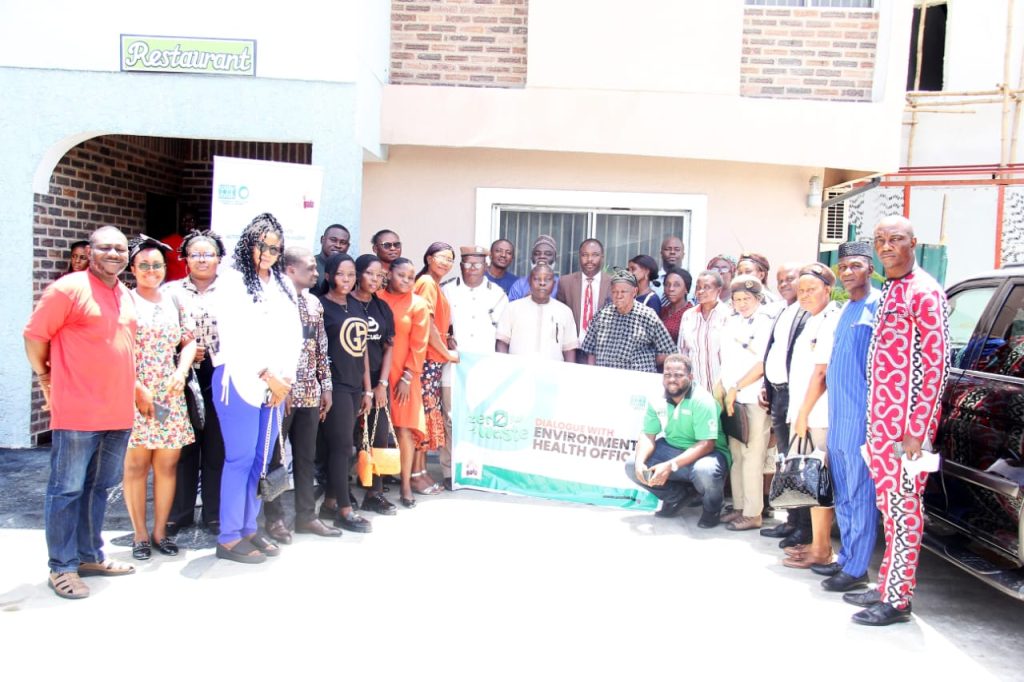Why Incoming Administration Must Appoint Environmentalist Commissioner for Environment – Akwa Ibom Environmental Stakeholders

… Make Case for Improved staffing of Environmental Health Officers
By Ekemini Simon
Environmental Stakeholders in Akwa Ibom State drawn from environmental rights groups, environmental health officers, the academia and the communities have called on the incoming administration of Akwa Ibom State to appoint an environmentalist as the Commissioner for Environment.
The stakeholders who observed that engagement of non-professionals over the years in the management of environmental issues in the State has left noticeable gaps especially in the drive towards zero waste in Akwa Ibom State.
The stakeholders noted that with an environmentalist as the Commissioner for Environment, issues of the environment would be fully understood, appreciated and implemented.
This was part of the position reached in a communique issued at the end of dialogue with Environmental Health Officers held in Uyo on Tuesday by Zero Waste Ambassadors (ZeWA) as part of its activities in strengthening local capacities for improved waste management in the Niger Delta.
The dialogue handled by Environmental Rights Action/ Friends of the Earth (ERA/FoEN) with support from Global Alliance for Incinerator Alternatives (GAIA) evaluated progress made in the waste management sector in Akwa Ibom State, the role of Environmental Health Officers and the way forward.
After robust discussions on the challenging issues of waste in the State, the stakeholders also recommended that besides appointment of an environmentalist as commissioner, there is a need for the state government to immediately engage professionals in waste management efforts in the State.
The gathering observed that the ongoing remediation exercise at Akpayak Community is not bio-remediation as claimed by the government. It added that the remediation is below global best practice and stands as a landmine for future disaster.
They noted that key stakeholders and the grassroots are often excluded from the formulation of waste management policies in the State.
Part of the communique reads “There has been over-concentration of waste management structure and effort in the capital city, leaving the local communities to their fate.
” Budgeting for waste management in Akwa Ibom State has been abysmally poor even as the sector has witnessed obvious gaps in transparency and accountability.
“Environmental Officers have been more concerned about revenue generation through environmental taxes and desk work than the field work which would have helped in the drive against zero waste.”
They noted that local government authorities have been relegated to the background on waste management even as their responsibility has been usurped by the State.
They pointed out that overtime, waste management has been left only in the hands of the government with little attention from the citizens over their roles and contribution thus leaving more to be desired.
The stakeholders further observed that most local government areas are left with only two or less Environmental Health Officers hence waste management efforts are negatively affected.
As recommendation, the gathering noted that while the government of Akwa Ibom State is commended for listening to calls for remediation of the Akpayak dumpsite, the government should take urgent steps to correct the remediation exercise in line with global best practices and turn it to a resource site.
They called on the government to henceforth include key stakeholders and the grassroots during formulation of waste management policies in the State.
They asked the government to make a conscious effort in extending waste management structure and effort beyond the capital city to communities.
The gathering pointed out that there is a need for improved budgeting of the waste management sector including the LGAs and added that transparency and accountability should be the watchword in implementation.
Part of the communique read “Environmental Officers must move beyond revenue generation and desk work into field work as prescribed in their mandate.
“Synergy must be engendered across State Government and Local government authorities on waste management strategy.
“Waste management must move beyond the sole responsibility of the government. All stakeholders should be interested in waste management by adopting the 7Rs strategy of Rethink, Refuse Reduce, Repurpose, Reuse, Recycle, and Rot.”
They called on the government as a matter of urgency to improve the staffing of Environmental Health Officers across the Local Government.







